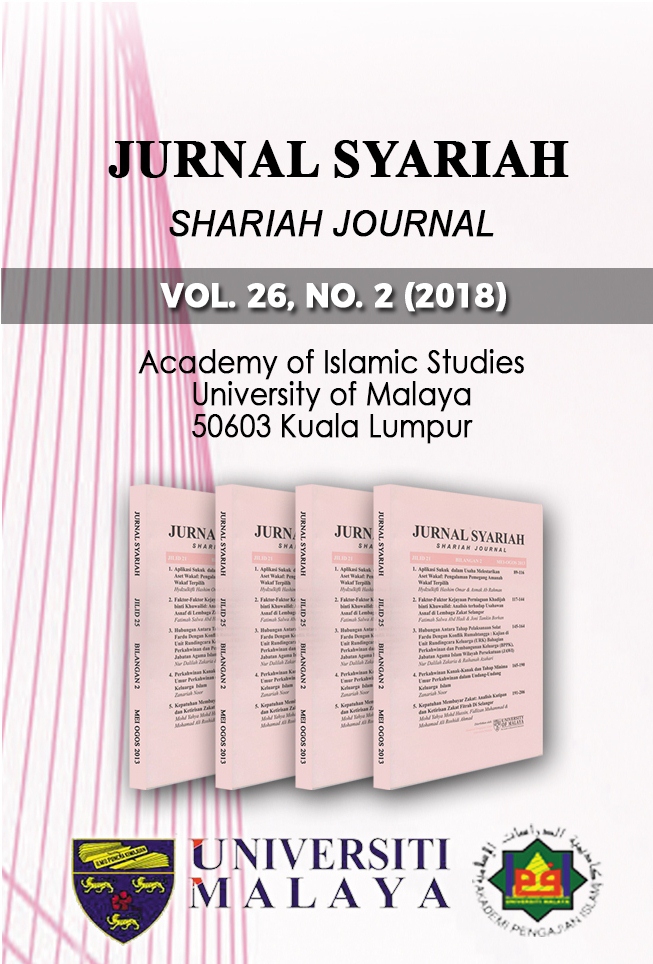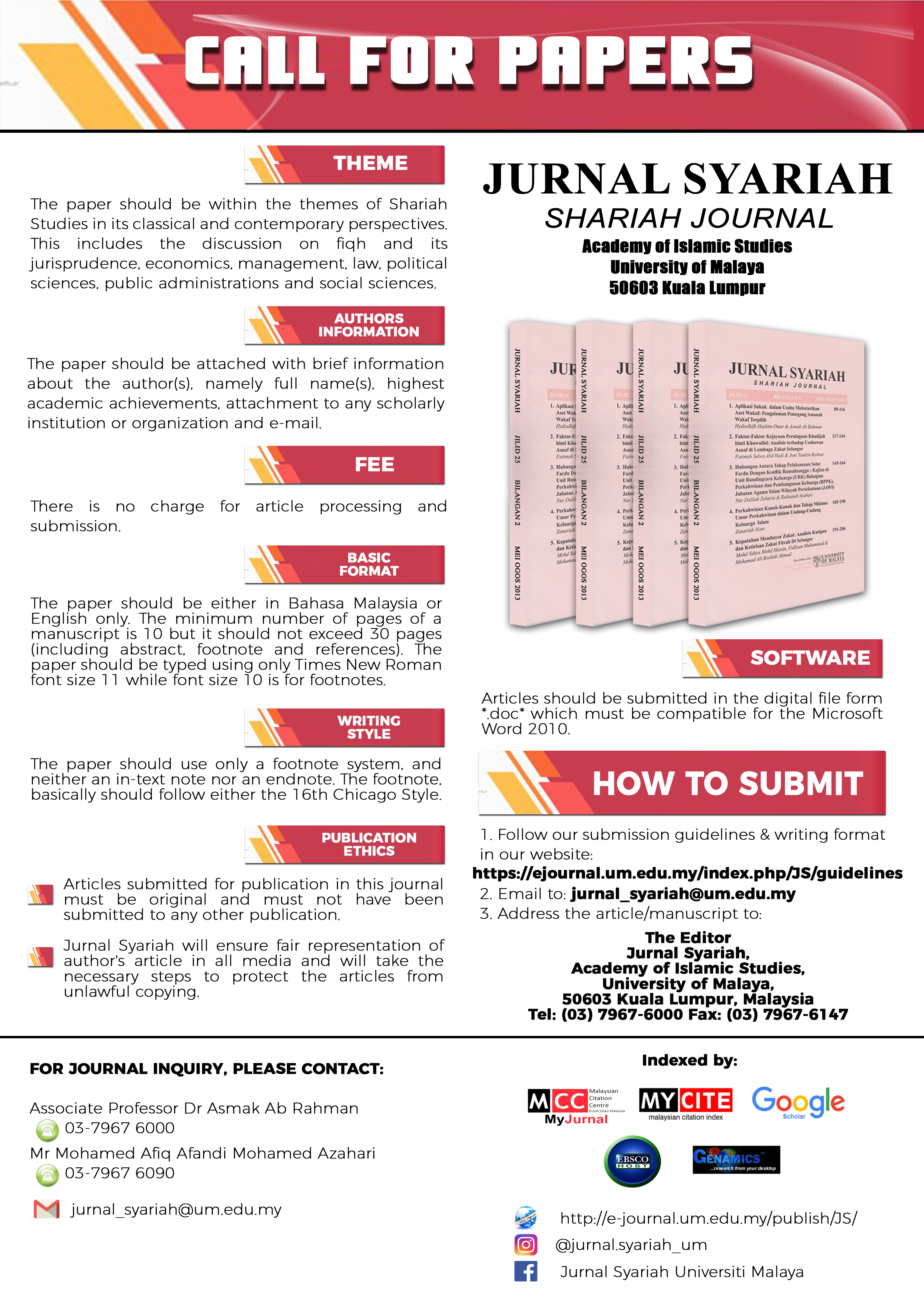PEMBELAAN HAK MANGSA KEMALANGAN JALAN RAYA BERASASKAN INSURANS DAN DIAT
The Defence of Road Traffic Accident Victims’ Rights According to Insurance and Diyah
DOI:
https://doi.org/10.22452/js.vol26no2.1Keywords:
claims, damages, insurance, diyah, road traffic accidentAbstract
Claims for damages of road traffic accidents in Malaysia are usually made through procedures in court. This occurs when there is a dispute over the liability and quantum of damages that should be paid by the guilty party. In the absence of a dispute, an out-of-court settlement may be exercised. The court process however, should not necessarily be done in Islamic compensation system called diyah. Diyah allows both parties to settle down their claim of damages with the presence of ‘aqilah. If the accused has committed negligence that causes injury or death to the victims, it is obligatory to pay a number of compensation to victim or their heirs. Therefore, the objective of this research is to examine the rights of the victims involved in road traffic accident both through the civil law system and the Islamic compensation system (diyah). An overview of road accident laws in Malaysia has been discussed in this paper including the Civil Law Act 1956 (Act 67), the Road Transport Act 1987 (Act 333), and the Insurance Act 1996 (Act 533). Rights and responsibilities arising from accidents also have been discussed. Using bibliographical studies, observation and semi structured interview as a methods of collecting data, the research finding indicates that victims are not being under a proper defence of their right. The victims have to go through the long process in order to get the quantum awarded by the court or insurance company. Hence, this research proposed compensation system based on diyah. Legal reform is necessary to address this issue.
Downloads
Downloads
Published
How to Cite
Issue
Section
License

This work is licensed under a Creative Commons Attribution-NonCommercial 4.0 International License.
COPYRIGHT: All rights reserved. Not allowed to be reproduced any part of articles and contents of this journal in any form or by any way, whether electronic, mechanical, photocopying, recording or otherwise without permission in writing from the Chief Editor, Jurnal Syariah.



















